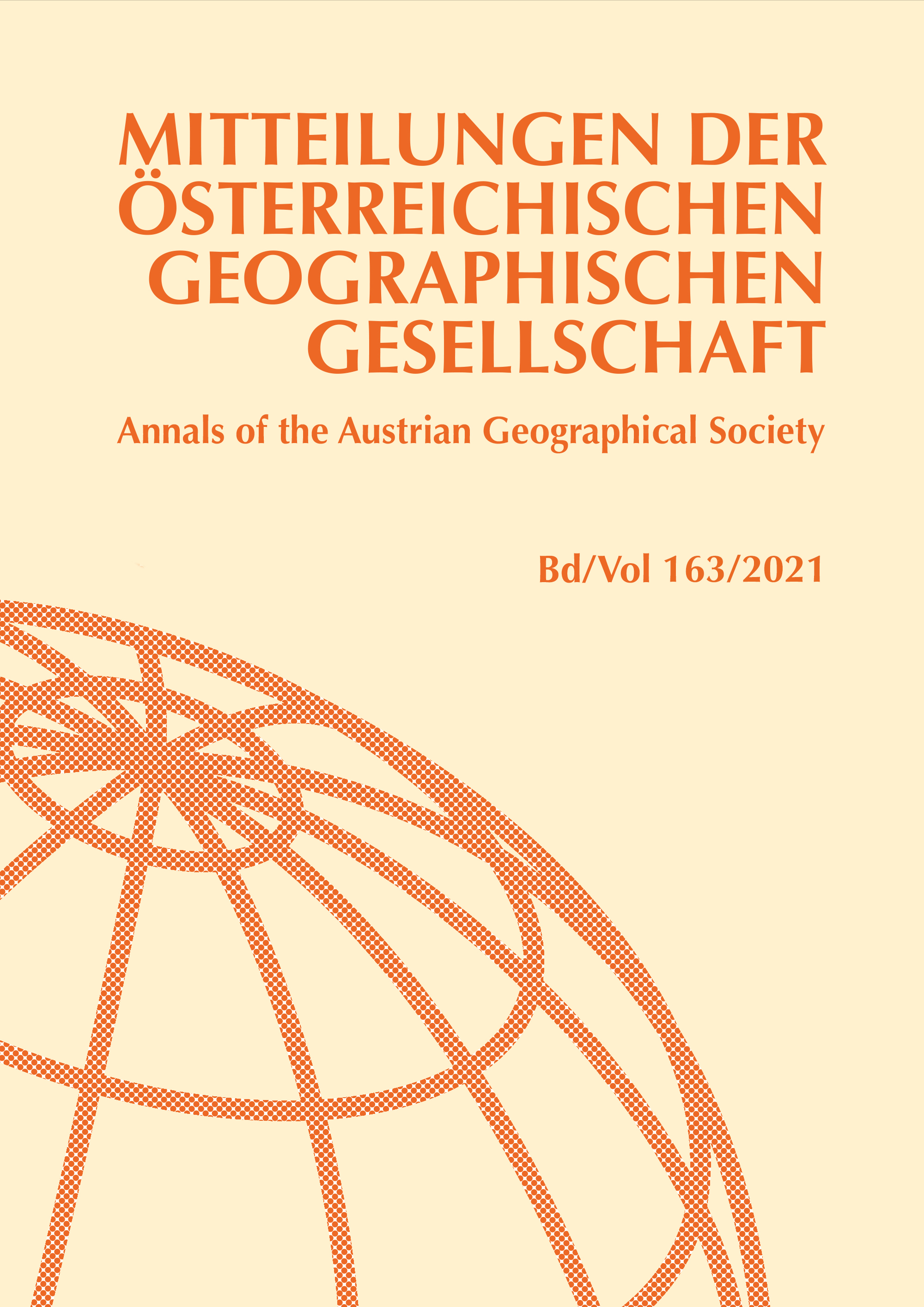
Mitteilungen der Österreichischen Geographischen Gesellschaft Band 163/2021, pp. 85-112, 2022/04/04
Band 163 (Jahresband), Wien 2021
Volume 163 (Annual volume), Vienna 2021

Given the tense situation in many metropolitan housing markets, concerns have arisen about tenants being displaced from their homes. The debate not only focuses on the number of people obliged to move, but also on the challenges and burdens it entails and, above all, where it leads them. Empirical, notably quantitative, findings on these questions, however, are rare. This article presents such findings for the German capital. These are based on a representative survey on moves between 2013 and 2015 and show that the majority of displaced tenants strive to find a new flat near their old one and for the most part succeed. It also shows that they have to make a much greater effort to find a new flat than those who have not been displaced. A detailed, spatially explicit analysis of where respondents moved to also indicates that some displaced tenants feel forced to move to locations not of their preference, including the outskirts of the city. That said, this only affected a comparatively small proportionof displaced tenants, at least in the period under review. It can be assumed, nonetheless, that with the further tightening of Berlin’s housing market in recent years, the problem of displacement to specific areas of the city is gaining substantial significance. In addition, there is evidence of exclusionary displacement, although this phenomenon was not the focus of the study: Low-income households in search of housing are excluded from certain urban areas in Berlin due to high asking rents.
Keywords: Displacement, residential location decision, gentrification, Berlin, tense housing market, house hunting